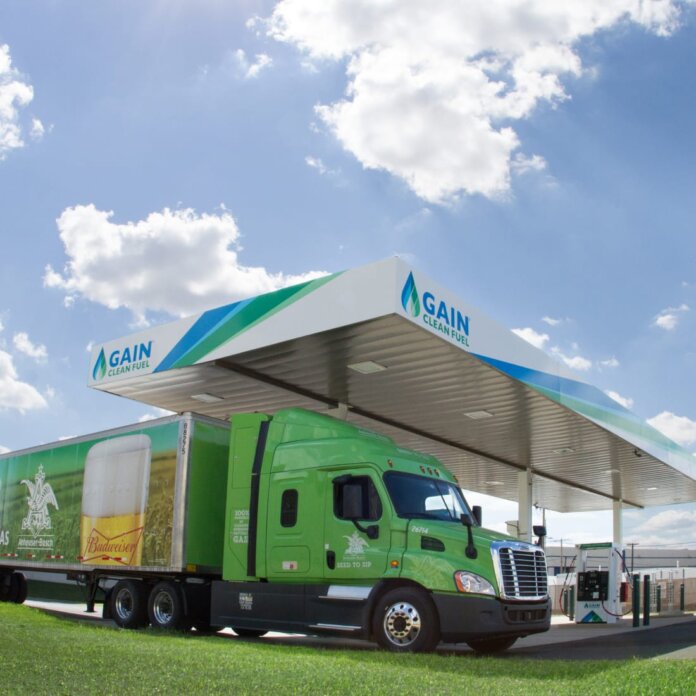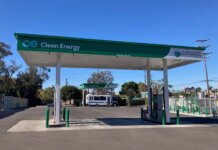NGVAmerica and the Coalition for Renewable Natural Gas say 69% of all on-road fuel used in natural gas vehicles in calendar year 2022 was renewable natural gas (RNG), surpassing the previous year’s record-breaking level.
Captured above ground from organic material in agricultural, wastewater, landfill or food waste, RNG can produce carbon-negative results when fueling on-road vehicles like short- and long-haul trucks, transit buses, and refuse and recycling collection vehicles.
For instance, California Air Resources Board data confirms that the annual average carbon intensity value of California’s bio-CNG vehicle fuel portfolio in its Low Carbon Fuel Standard program is carbon-negative and below zero at -92.26 gCO2e/MJ.
RNG use as a transportation fuel grew 17% over 2021 volumes, up 218% from 2018 levels. NGVAmerica and RNG Coalition report that in 2022, a total of 663 million gasoline gallon equivalent of natural gas were used as motor fuel. Of that, 457 million GGE were from renewable sources.
“RNG-fueled heavy-duty vehicles are a scalable, affordable and carbon-free-today solution for freight and transit fleets of all sizes,” says Dan Gage, president of NGVAmerica. “And with the upcoming availability of a 15-liter engine option, commercial fleet applications with the biggest torque and horsepower needs will also be able to transition to ultra-clean renewable natural gas motor fuel and displace diesel, saving on fueling costs and slashing their greenhouse gas emissions.”
“Renewable natural gas supply is growing,” adds Johannes Escudero, founder and CEO of the RNG Coalition. “With 281 RNG facilities transforming waste into fuel and another 476 planned or under construction we are increasingly able to affordably offer consumers the opportunity to decarbonize with RNG – the cleanest of any fuel available today.”







